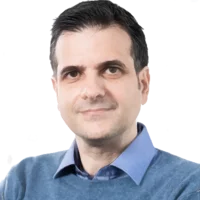The Energy Economics group at PSI produces world-class research across a broad spectrum of energy and environmental policy and technology issues. The group develops quantitative tools to help navigate decision-makers and stakeholders in the energy transition to a sustainable and resilient future. This is achieved by applying these tools for scenario analyses to form an inclusive and strategic framework that enables big-picture thinking and informs decision making under deep uncertainty.
Swiss energy scenario analysis
Switzerland is confronted with a number of policy challenges related to the energy system. The Energy Economics group at PSI has been a leader in analyzing the future development of the Swiss energy system, using energy scenarios and energy systems modelling approaches.
International energy scenario analysis
The international community faces several energy-related threats. Among the most pressing is the challenge of providing sustainable and reliable energy services to support economic and social development in today’s less-developed countries, while ameliorating the environmental effects of energy use and improving energy supply security. Historically, the Energy Economics group at PSI has made important contributions to the development of global energy-systems and integrated assessment tools.
Electricity Markets, Stochastic Storage Optimization
Energy markets facing a revolution driven by the unbundling of regulated and liberalized activities, the development of new business models on electricity, gas and hydrogen value chains, and the sector coupling that is associated with partial or complete withdrawal of public ownership in historical suppliers and the emergence of new market players. The Energy Economics group develops sophisticated energy market models to assess these new equilibria that emerging in the context of the Swiss, European and International energy transition.
Co-evolution of energy, economy and societal systems
Energy system models are crucial for planning the energy transition, but we need also to assess the socio-economic feasibility next to technical feasibility of their outcomes. This will enable the consideration of impacts across areas like climate change, supply chain vulnerabilities, labor effects, economic development, distributional impacts, environmental justice, energy equity, and social acceptability. Embracing this approach allows the assessment of the co-evolution of the social, economic and energy systems.

